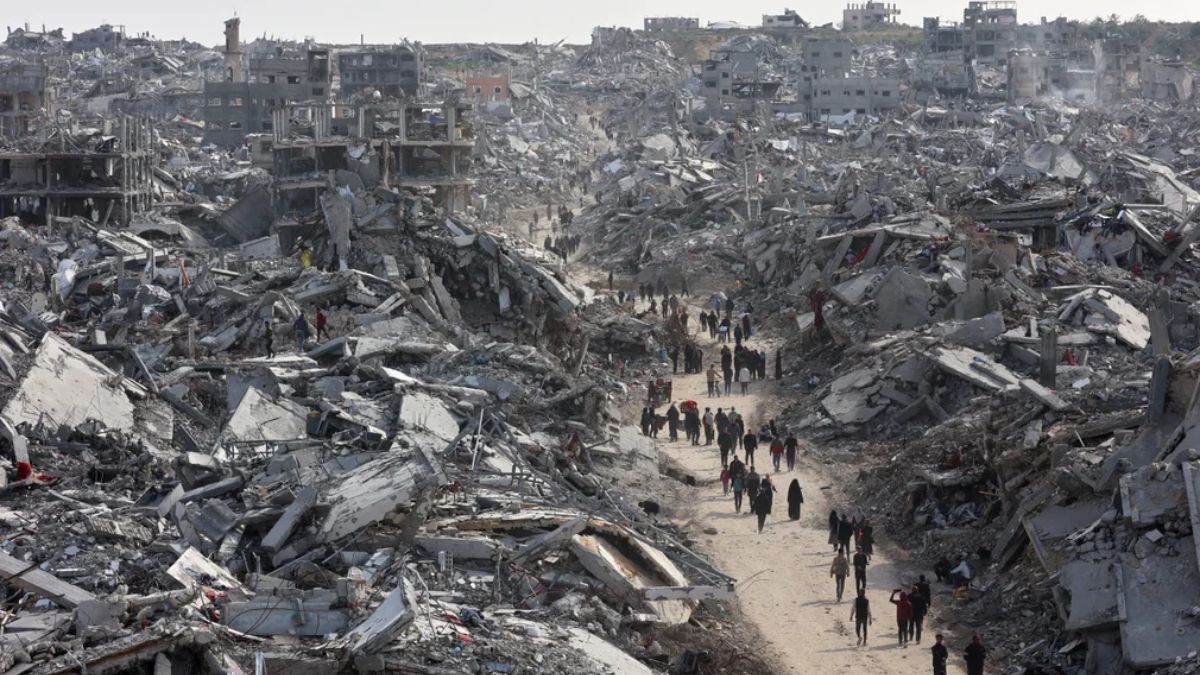Israel has reiterated that it will not allow Hamas to rule post-war Gaza as it could lead to another cross-border terrorist attack after the two sides reached a ceasefire that took effect last Sunday.
Talking to Reuters at the World Economic Forum (WEF) in Davos, Israel’s Economy Minister Nir Barkat said that reconstruction of Gaza was not possible unless Hamas decided it wanted lasting peace with Israel.
“The key question is if…they want to build a Dubai or rebuild Gaza the way it was,” Barkat said.
He added, “Dubai recognised the state of Israel, they are focusing on mutual economies…we would like to see Dubai in our region, not Gaza.”
Israel is actively seeking to establish a new governance structure in Gaza following the recent ceasefire with Hamas.
The reconstruction of Gaza is anticipated to be a slow and costly process, with international debates ongoing over potential governance models, including the involvement of peacekeepers and collaborative committees.
Hamas to stick around in Gaza?
With Israel pushing for its authority in Gaza after the war ends, analysts think Hamas is here to stay.
Israeli analyst Avi Issacharoff wrote in Yedioth Ahronoth newspaper, “Even after 15 months of war, Hamas remains in place.”
“Although the government of Benjamin Netanyahu said it will eradicate Hamas, the group not only survived militarily but also retained its rule intact,” he added.
The analyst further said that the Netanyahu government has not held serious discussions on the subject of who is capable of replacing Hamas.
Similarly, Brigadier General Amir Avivi, head of the non-governmental organization “Habithonistim”, told Maariv newspaper, “Alongside eliminating parts of Hamas’ leadership, Israel has not taken concrete steps to overthrow the movement as a governing authority.”
Impact Shorts
More ShortsHow Hamas still has a stronghold in Gaza
Opinion polls consistently show that only a minority of Palestinians support Hamas. But the Islamic militant group — which does not accept Israel’s existence — is deeply rooted in Palestinian society, with an armed wing, a political party, media and charities that date back to its founding in the late 1980s.
For decades, Hamas functioned as a well-organized insurgency, able to launch hit-and-run attacks on Israeli forces and suicide bombings in Israel itself. Many of its top leaders have been killed — and quickly replaced. It won a landslide victory in 2006 parliamentary elections, and the following year it seized Gaza from the Western-backed Palestinian Authority in a week of street battles.
Hamas then established a fully-fledged government, with ministries, police and a civilian bureaucracy. Its security forces quickly brought Gaza’s powerful families into line and crushed rival armed groups. They also silenced dissent and violently dispersed occasional protests.
With inputs from agencies


)

)
)
)
)
)
)
)
)



